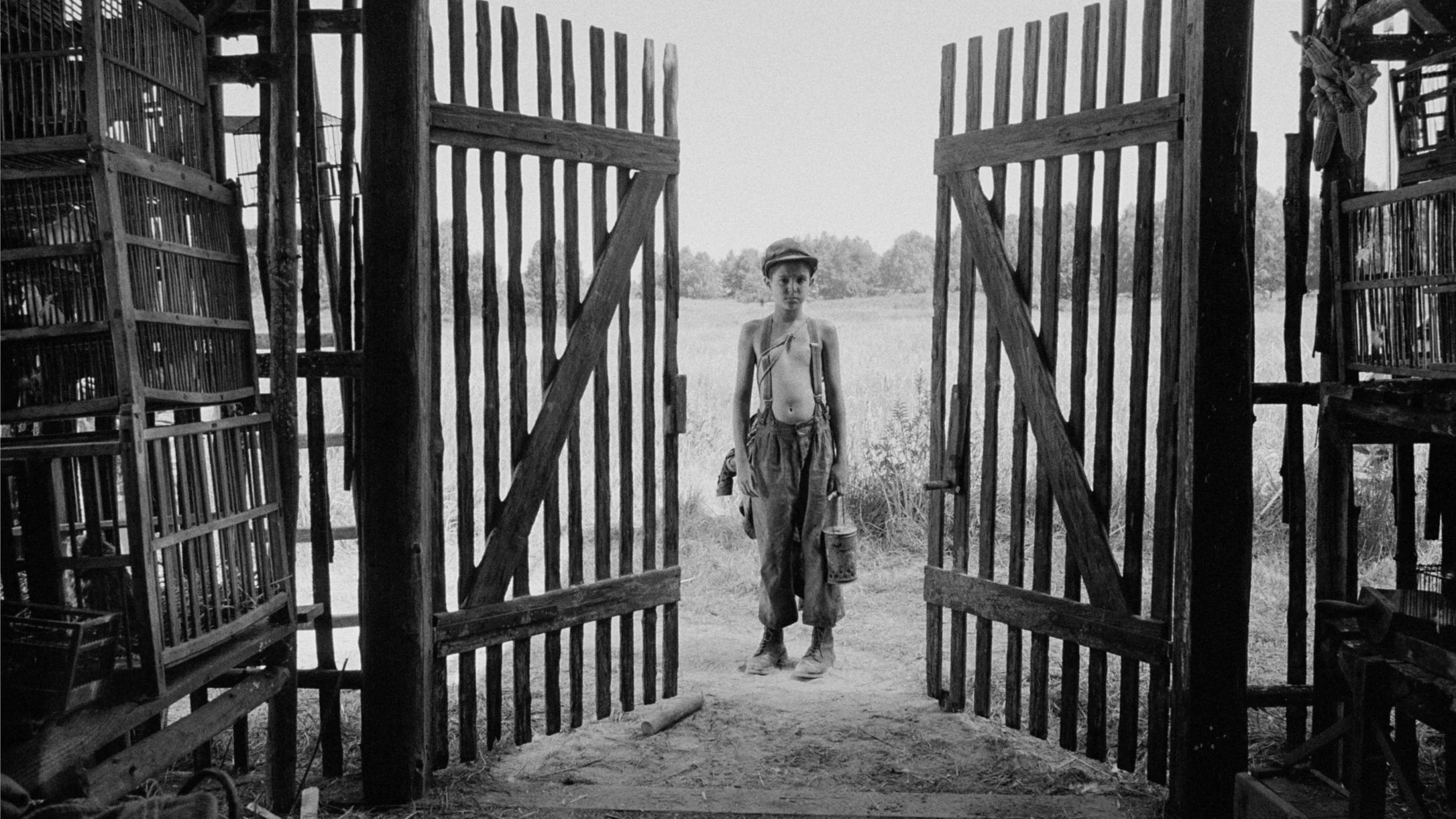The Painted Bird
A visionary drama about a wandering boy in a wartime setting that shows men's worst propensities.
The Czech director Václav Marhoul is not someone known to me but the way in which he has directed The Painted Bird is an achievement of the first order. If the film is nevertheless less than a masterpiece it is because the story it tells, an adaptation by Marhoul himself of Jerzy Kosinski's novel published in 1965, unsettles without ever quite coming into precise focus. It's an epic tale in nine segments that concentrates throughout on the experiences of a lost youth played by Petr Kotlar whose fate could be as terrible as that of the bird mentioned in a story that we hear which provides the film with its title. Instead of what Marhoul chooses to give us, such material could have yielded a grimly realistic but conventional portrayal, a standard story of the Second World War. Indeed, when soldiers do eventually appear they are German and Russian so that particular war does appear to be the setting, one in which the fact that the persecuted boy is Jewish is all too fitting.
However, Marhoul never names the country that supplies The Painted Bird with its stark landscape and this fact, together with the film's episodic narrative spread over almost three hours and shot in black and white 'Scope, gives the impression that some kind of universal statement is being made about the human condition. At the outset the boy is staying in a remote spot with his aunt Marta (Nina Shunevych) but when she dies suddenly he starts his wanderings. With no clear idea of how to find his parents, he encounters instead strangers who in most cases are ready to exploit him: they include a paedophile (Julian Sands), a nymphomaniac (Jitka Cvancarová), a seductress (Julia Valentova), a witch doctor who regards him as evil (Alla Sokolova), a Russian soldier (Barry Pepper) keen to convert him to Communism and a husband (Udo Kier) who gouges out the eyes of his wife's younger lover. He does also meet a well-meaning priest (Harvey Keitel), but almost all of the characters behave despicably and, given his horrific experiences, it is hardly surprising that the boy himself should lose his innocence and accept violence as the way to assert himself and survive.
Finely shot by Vladimir Smutný, The Painted Bird dares for much of the time to use short scenes to tell the tale, a device which could easily have added to the sense of this is being a very long film. But, despite that approach, Marhoul miraculously keeps the film flowing and sustains its 169 minutes with ease. Further mastery is shown late on when the arrival of the Cossacks leads to a powerful montage depicting the killing and destruction inherent in war in a manner that evokes Eisenstein (for that matter the scenes with the priest feel Bergmanesque). This is great, but is the film taking as its central argument that war corrupts or that outsiders, Jewish or otherwise, are always unfair victims or is it going wider and simply claiming that human nature is basically bad? Whichever it is, when an adult woman sets out to seduce the boy the sequence is too out of the way to convince as a general illustration of how innocence is likely to be corrupted. This episode also underlines the film's lack of any sympathetically drawn female character. As against that, however, save for the priest and for Stellan Skarsgård's German soldier all the men behave in ways that the film clearly deplores. Some will, of course, regard the film as too one-sided in its bleakness but, oddly enough it was a last minute attempt to suggest hope that I found unconvincing. But, if what the film is saying may be at once open to question and controversial, the technical accomplishment is remarkable.
Original title: Nabarvené ptáce.
MANSEL STIMPSON
Cast: Petr Kotlár, Nina Shunevych, Alla Sokolova, Udo Kier, Michaela Dolezalova, Zdenek Pecha, Lech Dyblik, Jitka Cvancarová, Stellan Skarsgård, Harvey Keitel, Julian Sands, Julia Valentova Vidrnakova, Aleksey Kravchenko, Barry Pepper, Petr Vanek.
Dir Václav Marhoul, Pro Václav Marhoul, Screenplay Václav Marhoul, from the novel by Jerzy Kosinski, Ph Vladimir Smutný, Pro Des Jan Vlasák, Ed Ludek Hudec, Costumes Helena Rovna.
Ceská televize/Eduard & Milada Kucera/Directory Films/Certicon Group-Eureka Entertainment.
170 mins. Czech Republic/Ukraine/Slovakia. 2019. Rel: 11 September 2020. Available in cinemas and on CHC, BFI Player, VOD, etc. Cert. 18.


